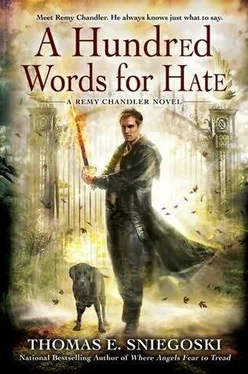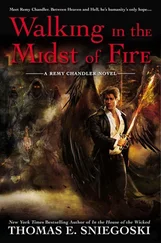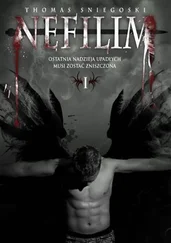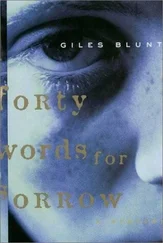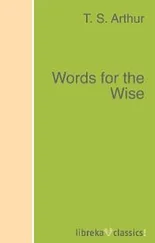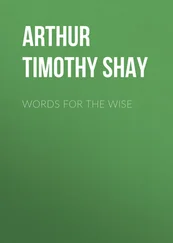A Hundred Words for Hate
(The fourth book in the Remy Chandler series)
A novel by Thomas E Sniegoski
For Mulder
A hundred words . . . far too few to describe how much it hurts that you’re gone. Until we see each other again, you will always be in my thoughts, and in my heart.
With love to my wife, LeeAnne, and to our newest addition, Kirby, for not sending me back to New Jersey.
Thanks are also due to my pal Christopher Golden, Ginjer Buchanan, Liesa Abrams, James Mignogna, Dave “Do These Slacks Make Me Look Fat?” Kraus, Pam Daley, Mom and Dad Sniegoski, Mom and Dad Fogg, Pete Donaldson, Kenn Gold, Thomas “Blessed” Hope and the lovely Rachael, Timothy Cole, and the Evolution Revolution down at Cole’s Comics in Lynn.
Tom
The Jungles of Paraguay: 1929
The first of humanity lay as if dead in the cool semidarkness of the underground chamber and dreamed of another time—of the Garden, of what he had lost to the poison of original sin. It had been so very long ago, but the memories lingered, as sharp as a viper’s tooth and three times as venomous.
Adam had lived every moment of his multitudinous years with endless regret. The apologies to He who had created him—who had breathed life into what had once been dirt—were far too numerous to count, yet always fresh upon his lips.
Even when he dreamed, he begged for forgiveness. In the land of sleep he was free of the ravages of time, and he scraped and bowed before the glory of his Creator, praying for blessed forgiveness and eternal rest beneath the grounds of Eden.
And of late, he had entertained the idea that it might just happen.
For he’d been dreaming of the Garden like never before.
She was returning.
Soon.
Jon shielded his eyes, squinting as he gazed up through the jungle canopy at the noontime sun. He was late; a game of marbles with one of the younger boys—in which he’d won a cat’s-eye, an aggie, an oxblood, and three new clearies—had delayed him. The teenager hoped he wouldn’t be met with a lecture as he ran, sandaled feet slapping rhythmically along the worn jungle path.
He knew they all had a responsibility in tending to the needs of the patriarch. To the novice’s eye, the withered form appeared as though dead; even Jon’s grandfather could not remember a time when he had moved. But to the Sons of Adam, this ancient man was so very much more.
He was the first father, and their sole purpose for existence.
Jon and his people were the direct descendants of the first children of the world. They were charged with caring for the father of them all, and praying for the day when they could return to Paradise.
Although he would never dare voice it, Jon doubted that would ever happen. The patriarch had already lived for thousands of years, existing in a state of living death. Why would a God who allowed this to happen to the first of His creations show mercy after all this time? Most in the order believed He would.
But Jon was skeptical.
He stopped before the entrance to an ancient, vine-covered Incan temple. He expected to find Nathan waiting for him, an annoyed look upon his face.
This wasn’t the first time Jon had been late.
But Nathan wasn’t there; neither was Josiah, nor any other member of the order. Jon was suddenly filled with an odd sense of foreboding that made the guilt he was already feeling expand into full-blown panic.
What if something had happened to Adam? What if the first father had needed something and he, Jon, hadn’t been there?
His mind raced as he climbed the decaying stone steps and made his way down the cool, torchlit passage toward the patriarch’s resting chamber in the belly of the temple.
As Jon grew closer, he noticed an eerie, pulsing orange glow emanating from within the normally semidark room. He reached into the pocket of his robes, feeling the leather pouch that held the spoils of his latest victory, and took strength from them. Then he quickened his pace.
Jon’s imagination flared. Perhaps some of the oil used to keep the passage torches lit had spilled— ignited —and his brethren were attempting to extinguish the flames before any harm could come to . . .
But there was no fire burning within Adam’s chamber.
As Jon passed through the stone archway, he saw the cause of the unearthly glow, and struggled to believe his eyes.
How is this possible? he asked himself in disbelief. But wasn’t the entire order based upon things that the rational world would find unbelievable? Why, then, would this sight be any more implausible?
Josiah and Nathan were kneeling just inside the chamber, held in rapt fascination by the sight of the angel (for what else could it be?) that stood before the patriarch’s sleeping alcove.
The being seemed to be comprised of light, and the huge wings upon its back radiated a warm, pulsing glow. It was at least seven feet tall, its powerful body covered in layers of flowing robes that appeared to be cut from the fabric of the night sky, and decorated with the stuff of stars.
And when it turned to look at him, Jon felt the strength leave his legs, and they began to tremble with uncontrollable fear.
The angel’s face was fierce, its eyes like bottomless caverns of pitch, its pale features sharp and angled as if chiseled from stone—its flowing hair and beard seemingly composed of fire.
Jon wanted to run, but it was as if a large pair of invisible hands had clamped down upon his shoulders, forcing him to kneel beside his friends.
And then came its voice, sounding like every instrument in the world’s largest symphony playing the same beauteous note at once.
“The Gardener’s life draws to a close,” the strange being proclaimed.
In the confines of the stone chamber it was the loudest sound Jon had ever heard, and he winced in agony as he covered his ears.
“From across the void I have heard his plea,” the angel continued.
Josiah and Nathan fell upon their sides, writhing under the assault of the messenger’s booming voice.
“Eden draws near . . . .”
Its voice was like knives relentlessly stabbing into Jon’s brain and he opened his mouth in a scream of agony that he could not hear.
“And I have come to bring him home.”
Fernita Green could not remember what she had lost, and that was why Remy Chandler was there.
He stood in the kitchen of the old woman’s home, surrounded by the accumulations of her very long life. Plastic bags filled with other plastic bags and scraps of what he could describe only as trash, but kept by Fernita because it just might—one day—be important. Stacks of newspapers like ancient rock formations grew up from the rubbish-strewn floor, some leaning dangerously, but somehow defying the laws of physics.
The counter near the sink was covered with empty bottles and flattened cereal boxes. Tin cans and glass jars had been rinsed clean and stacked amid the debris.
Remy found the teakettle behind a stack of plastic Meals On Wheels containers. They had been washed out as well.
The inside of the sink was relatively clear, and he placed the empty kettle beneath the faucet. He turned on the water, gazing over a row of knickknacks and through the grimy window at the lushly overgrown backyard while the kettle filled.
A little more than three weeks ago, Fernita had started calling his office. She had wanted him to help her find something, but she couldn’t remember what it was. Remy had tried to dissuade her, encouraging her to call a family member instead. But she had continued to call him—sometimes leaving as many as four messages a day—until he had finally agreed to pay her a visit.
Читать дальше
